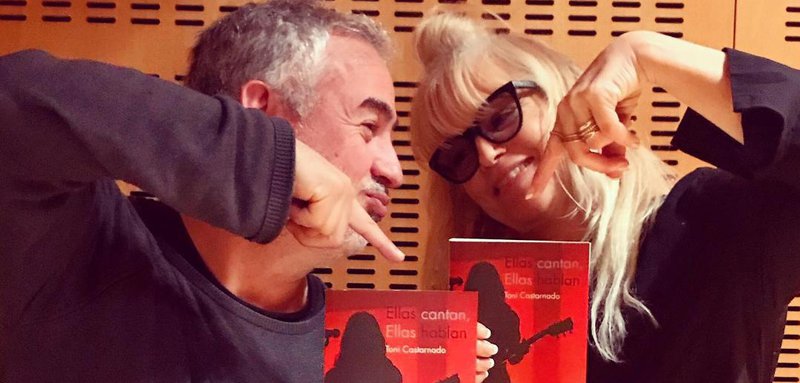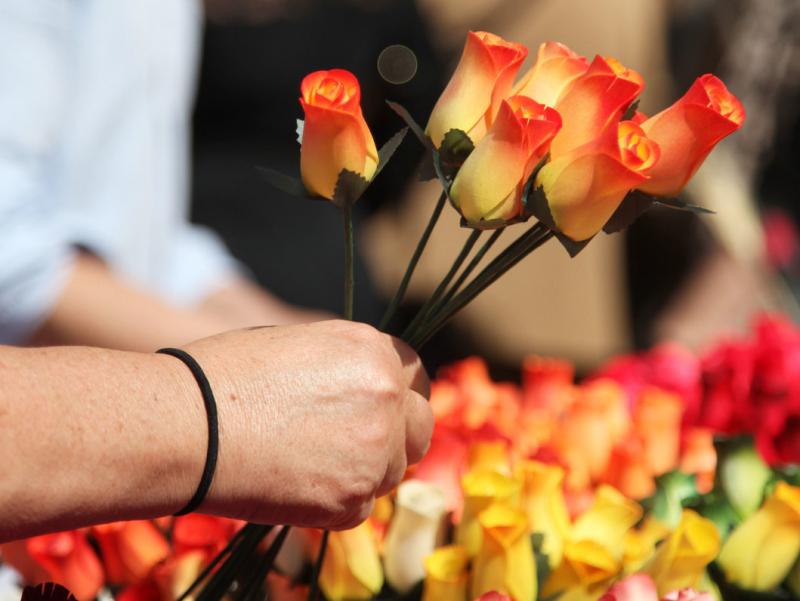Feminine voices
A new book compiles a hundred interviews with female voices, including Mavis Staples, Patti Smith, Andrea Motis and Rosalía
The first is Mavis Staples, American soul legend who turns 80 this year and who in her interview recalls playing at many festivals with a young Bob Dylan in the early sixties. The last is Jorja Smith, a young woman from Walsall, an industrial city in the UK, who is admired by Drake and Bruno Mars and in her chat talks about mixtapes and Instagram. Fifty-eight years separate the two, in between are 99 other interviews with female singers that journalist Toni Castarnado – author of other books with the same theme – has compiled in the collection Ellas cantan, ellas hablan (They sing, they speak) (Silex). “I’ve always been captivated by female voices,” the author confesses. “In the 1990s I musically fell in love with PJ Harvey and Tori Amos, and I also began to get interested in singers such as Lucinda Williams and Gillian Welch. The media outlet I was working for commissioned me to review records by women or, if necessary, interview them, and without realising it I ended up specialising in it.”
Ellas cantan, ellas hablan, which alternates interviews from the author’s archive with conversations conducted specifically for the purposes of the book, includes encounters with such stars as Patti Smith, Marianne Faithfull, Rickie Lee Jones, Tori Amos, Ani DiFranco, Estrella Morente and Katie Melua, but also with a wide range of singers from this part of the world too, such as Maria del Mar Bonet, Joana Serrat, Sílvia Pérez Cruz, Maria Rodés, Maria Arnal, Rosalía, Andrea Motis and Nuria Graham. “There were so many to choose from, especially in Catalonia, where a very strong scene has emerged with all kinds of styles. We mustn’t let this era go unnoticed and ensure that those to come in the future break out with the same force. The key, as Christina Rosenvinge says, is that girls lose their fear of picking up a guitar.“
In the interviews, questions related to music are found alongside those addressing other aspects of life. “I was surprised, for example, by the maturity of Andrea Motis, who admitted she didn’t know what a millennial was but had travelled around the world and met musicians of a very high standard. I also loved listening to Nuria Graham, when she explained the advantages and disadvantages of being a single child. And then Laura Marling really made me think when she said she couldn’t speak to a man about women’s issues.” The sense of such different artists being grouped together due to the mere fact of being women is also addressed by some in the book. “Leonor Watling questions why there must be cinema solely aimed at women and vice versa, as if she could not like The Godfather.” And feminism is not left out either. “Some people believe in the importance of the famous quotas and some don’t. Some get involved in associations and some don’t. Each of them has her own circumstances, but they all share the aim of fighting, improving, changing behaviours. March 8 last year balanced things out in this respect. As Maria Arnal says in her interview, when Ana Rosa Quintana went on strike it was a positive thing, since women with so much power are a thermometer for how far feminism works.”
Castarnado is currently holding a series of conversations with some of his interviewees in Barcelona bookshops. Tori Sparks and Cathy Claret have already taken part, and other participants will include Sabina Witt, Edurne Vega, Sol Escobar, Mariona Aupí, Marta Knight and Eva Fernández .
bookS


